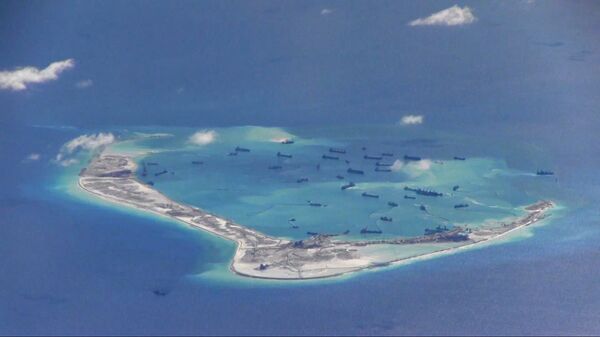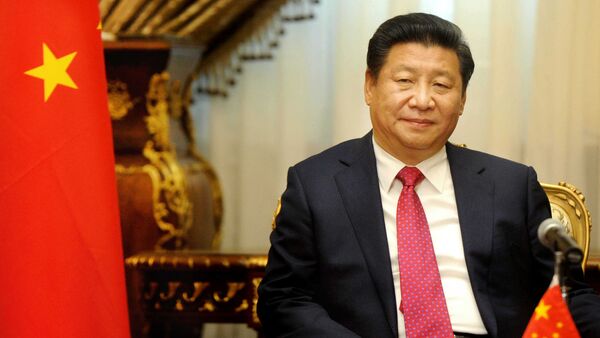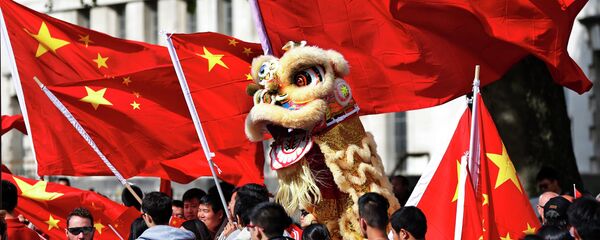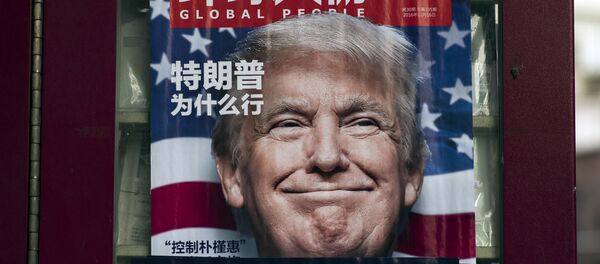It appears that US President Donald Trump has made an astonishing U-turn on US-Chinese relations in his first phone conversation with his Chinese counterpart Xi Jinping.
Trump's maneuver caught some observers off guard and prompted speculation in the mainstream media that the US President "may turn out to be a paper tiger."
Speaking to Xi on Thursday, Trump signaled that he accepts the "One China" policy in regard to Taiwan.
"President Donald J. Trump and President Xi Jinping of China had a lengthy telephone conversation on Thursday evening. The two leaders discussed numerous topics and President Trump agreed, at the request of President Xi, to honor our 'one China' policy," the White House said in a statement.
In the eyes of Beijing, Trump's phone call amounted to a violation of the "One China" principle.
As if that weren't enough, Trump also criticized Beijing for its activities in the South China Sea and "currency manipulations."
While the tension gradually escalated between Washington and Beijing, experts were racking their brains to figure out what Trump's next move would be.
Rex W. Tillerson, who was sworn in as US Secretary of State last week, added fuel to the fire during his confirmation hearing. Tillerson said that Beijing should be blocked from accessing its artificial islands in the South China Sea.

Incredible as it may seem, it was US Defense Secretary James "Mad Dog" Mattis who reduced tensions last Saturday by saying that the White House "sees no need for dramatic military moves" in the South China Sea.
Trump broke the ice with President Xi Jinping this Wednesday with his letter to the Chinese leader.
According to the White House's official statement, in his letter the US President thanked President Xi for his congratulatory letter on the occasion of Trump's inauguration and wished the Chinese people a happy Lantern Festival and prosperous Year of the Rooster.
"President Trump stated that he looks forward to working with President Xi to develop a constructive relationship that benefits both the United States and China," the statement said.
In response, Chinese Foreign Ministry spokesman Lu Kang told a daily press briefing that Beijing "highly appreciate President Trump's holiday greetings to President Xi Jinping and the Chinese people."
It looks as if the recent telephone conversation between Trump and Xi has sealed the apparent thaw. However, according to Nikita Danyuk, Deputy Director of the Institute of Strategic Studies and Forecasts at Peoples' Friendship University of Russia, Washington is likely to adopt an "aggressive" political approach toward Beijing.
Speaking to Radio Sputnik, Danyuk underscored that Trump's decision to comply with the "One China" policy indicates that the US President is a pragmatist in the first place.
"Since the presidency of Jimmy Carter, the US has never thrown the territorial integrity of China into question," Danyuk said.
"But even in the context of this 'reassessment' of relations Trump is not going to destroy their foundations. And this is very important," the Russian political analyst stressed.
"Donald Trump is focused on changing [the US'] foreign [policy] and economic agenda. One of his election promises was to impose a 40-percent tariff on Chinese goods. It is likely that these tariffs will be introduced," Danyuk suggested.
He also assumed that Washington will take efforts to reduce China's political and economic influence in Southeast Asia.
"There will be speculations about 'currency manipulations' [on the part of China] and the renminbi's exchange rates. In general, Trump's policy toward China is likely to be more aggressive than that of [former US president] Barack Obama," Danyuk concluded.
Have you heard the news? Sign up to our Telegram channel and we'll keep you up to speed!






